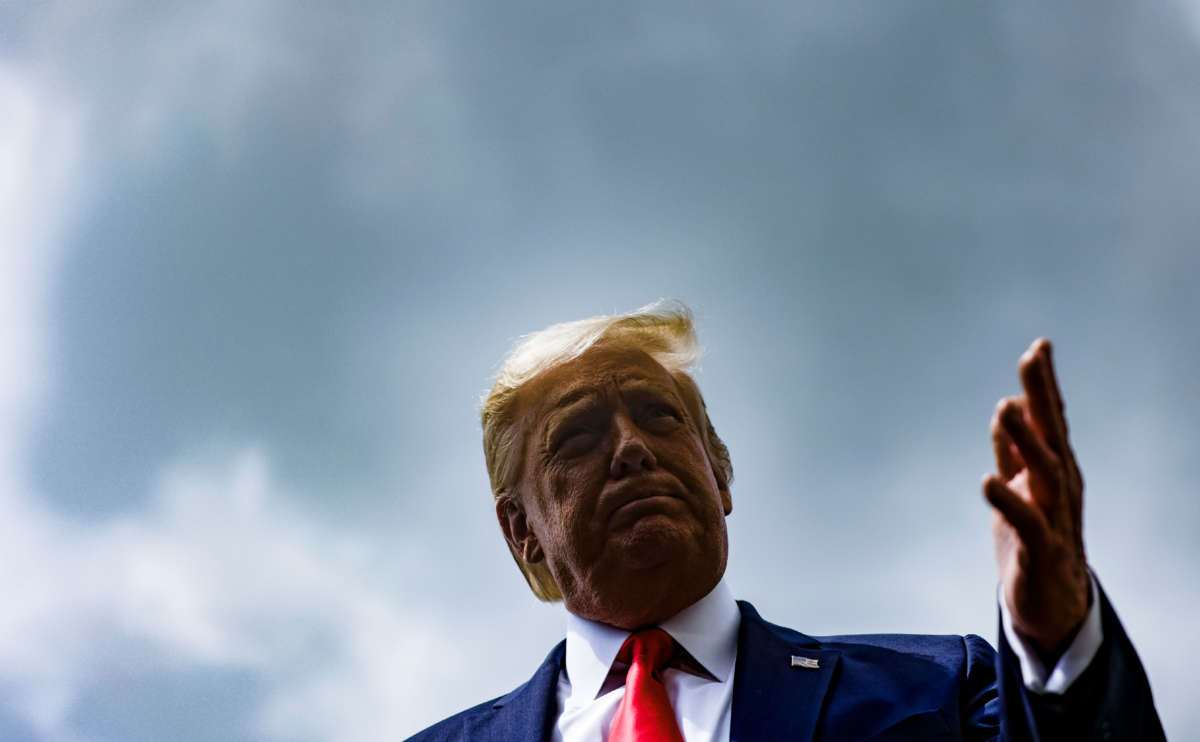A new book by CNN Chief National Security Correspondent Jim Sciutto details how several officials were reticent to provide President Donald Trump with military options out of fears he could have responded to international events by starting new wars.
The book by Sciutto, The Madman Theory: Trump Takes on the World, includes several interviews with former Trump administration officials who described how worried they were about the president’s unpredictability when it came to making foreign policy decisions.
In 2017, for instance, when Trump was having a back-and-forth with North Korean leader Kim Jong Un, the Pentagon was hesitant to give Trump military-based response options out of fear that he might take a more aggressive approach, if one was offered to him, according to Joseph Yun, who served as Trump’s former representative for North Korea policy until 2018.
“We used to only think of Kim Jong Un as unpredictable. Now we had Trump as unpredictable,” Yun told Sciutto.
Officials were also worried about Trump being given military options when it came to dealing with Iran, other former officials said. In 2019, in response to that nation shooting down a United States surveillance drone in the Persian Gulf, Trump took the extreme measure of ordering a military strike against one of that nation’s military bases, but halted the operation moments before it was set to begin.
Mick Mulroy, the former deputy assistant Secretary of Defense for the Middle East, told Sciutto that he had to try and explain what Trump’s next moves in the region would be to allies, and that he couldn’t readily do so.
“We told allies that we did not know what the President would be willing to do against Iran,” he said. “It was possible he could make a decision that would lead to an escalation of the conflict, and that escalation could lead to war, so they needed to relay that to Iran so they realized not even his staff knew what would happen if they attacked another oil facility, for instance.”
When mortars landed near the U.S. Embassy in Iraq in September 2019, officials from the Pentagon were flabbergasted when the White House made a request for military response options.
In Sciutto’s book, an unnamed former U.S. senior military official recounted a conference call between the White House and the Defense Department, with vice chairman of the Joint Chiefs of Staff General Paul Selva briefly muting the call to express confusion over what was being requested to those in the room with him.
“He said, ‘Is this a joke? They really want us to propose direct military action into Iran, against Iran, based on this?'” the former official said.
After the call, Selva and Undersecretary of Defense for Policy John Rood, who was in the room during the call, let their colleagues know they wouldn’t craft any military options until directly ordered by the president to do so.
Trump’s unpredictable nature on foreign policy is no secret to most, but his policy choices tend to focus on how it can benefit himself more than how it will keep the country safe.
Former Defense Secretary Chuck Hagel, a Republican who served in that role under former President Barack Obama, was also interviewed by Sciutto about the stark differences in philosophy between the two administrations.
“In all my years dealing with national security and intelligence and foreign policy I’ve never heard any senior military leaders express concern about a president’s decision-making,” he said. On the other hand, while serving as Defense Secretary, “my Pentagon colleagues and I always knew that President Obama had studied the issues, was well informed and wanted our opinions and recommendations.”
Trump’s catastrophic foreign policy was on full display earlier this year, after he ordered the assassination of an Iranian general whom the administration accused of orchestrating attacks on U.S. soldiers in Iraq.
War was averted following the strike, but as tensions escalated, it wasn’t clear to the world, nor to military experts in the U.S., what strategy Trump had in mind following the action. According to polls at the time, a majority of Americans also felt less safe due to the president’s actions.
Join us in defending the truth before it’s too late
The future of independent journalism is uncertain, and the consequences of losing it are too grave to ignore. To ensure Truthout remains safe, strong, and free, we need to raise $43,000 in the next 6 days. Every dollar raised goes directly toward the costs of producing news you can trust.
Please give what you can — because by supporting us with a tax-deductible donation, you’re not just preserving a source of news, you’re helping to safeguard what’s left of our democracy.
